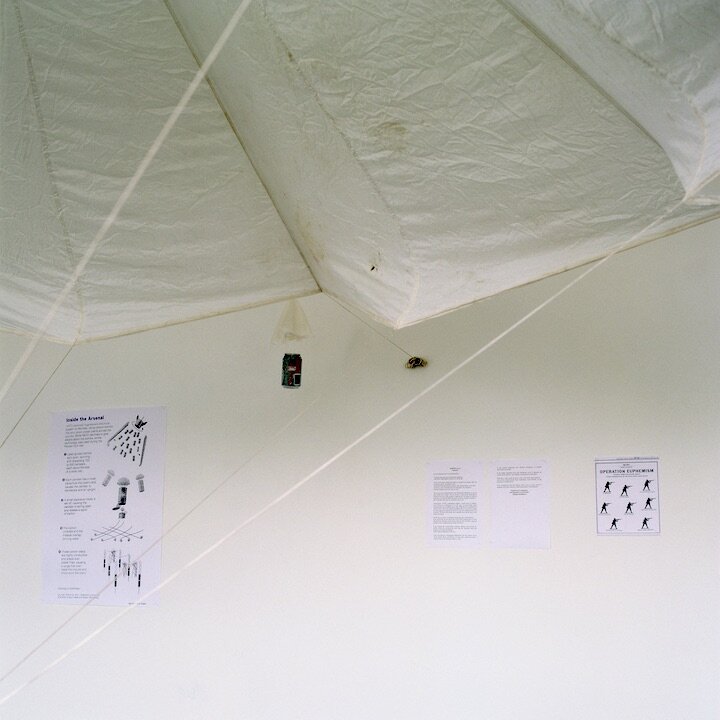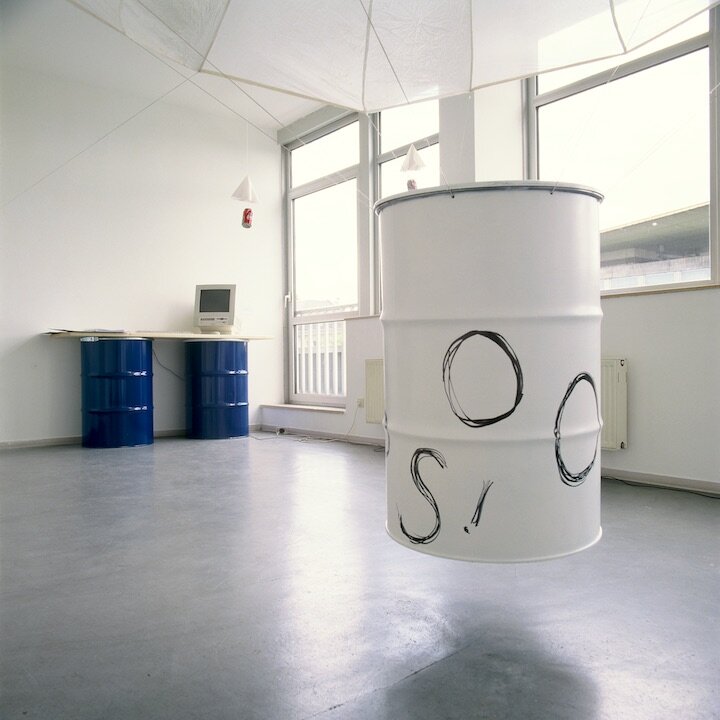OOPS! (Nobody loves a hegemon)
1999
Installation with three oil barrels, a parachute, handwritten text, pine board, Coca-Cola cans, white handkerchiefs, wall text, and handout
From March 24 to June 9, 1999, NATO flew airstrikes against the Federal Republic of Yugoslavia in the so-called Kosovo War. OOPS! (Nobody loves a hegemon) was made the same year, critically reflecting on the double standards and own interests of the United States, NATO, and their allies, who carried out this mission on their own authority with no U.N. mandate or specific case for the military intervention.
"NOBODY loves a hegemon but the hegemon does not understand this. For those who may have momentarily forgotten TRUTH IS THE FIRST CASUALTY OF WAR. Along with human deaths and injuries, and physical damage, there are economic, moral, and political costs. When NATO dropped those canisters (and cluster bombs), more than electricity, radio, and television were disrupted. The disruptive elements landed on our own eyes as well. We are anxious to help the Kosovars (Albanians) (Muslims) to stay in their homes and villages. We are anxious to punish the leadership of Serbia for its war crimes—partly to make up for our failure to help the Bosnians or to help the Serbs during the Croatian criminal expulsions. But we hardly know how to count the costs of war. Strategically, NATO commanders wanted a quick show of military force before its celebration of its 50 years of successfully doing nothing in the way of military force. The celebration was scheduled for April in New York City. But the bombing did not succeed in ending the Serb aggression against the Kosovars, and the exultation had to be curtailed. The fancy-dress balls were canceled and only the fancy-food dinners remained. NATO may now have succeeded in destroying the United Nations. It has shown the Soviet Union who is boss (the United States) as it has absorbed the members of the former Warsaw Pact (NATO’s opposite number), those neighboring the former West bloc. It has helped the United States weapons industry and boosted the dollar—which has devalued the Euro and the European unity that depends on its financial stability. It has replaced diplomacy with force. [...] It has reminded us that the military always tries to seize control of language and of the means by which information is disseminated. Nobody loves a hegemon, but hegemony is successful. "—Rosler.






